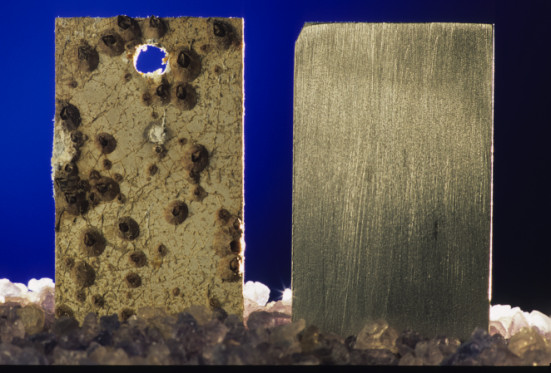
Microbiologically Influenced Corrosion (MIC), or microbial corrosion, represents a serious problem in many industrial plants, since bacterial communities are common inhabitants of any possible environment, from high pressure lines to radioactive wastes. MIC is most commonly found in condenser water, cooling loops, wastewater and Oil&Gas lines, but it has been identified in most piping systems - from domestic water and fire sprinkler lines, to water heating systems.
For open systems, the main entry point for bacteria are intake water and cooling towers. The second ones act similarly to giant air scrubbers, washing large amounts of particles, organic matter and microbes into the water. For closed systems, the microbes present in the make-up water (feed water) usually provide the initial source of contamination. Under favorable conditions, even a small initial microbial load can give rise to significant problems.
MIC is extremely aggressive, and in its worst form it can lead to piping failures within a short time. Once established, MIC is extremely difficult to eliminate, and it may elevate into a chronic maintenance and operating problem. The failure to totally remove MIC from deep pits, branches and dead legs of a piping system generally results in reinfection of pipes within a short period of time.
ALVIM Biofilm Sensor helps to prevent both the corrosion caused by bacterial activity (MIC) and the corrosion produced by overdose of chlorine and other oxidizing chemicals.
Suggested readings:
Videla, H. A. (1994). Biofilms and corrosion interactions on stainless steel in seawater. International biodeterioration & biodegradation, 34(3-4), 245-257.
Angell, P. (1999). Understanding microbially influenced corrosion as biofilm-mediated changes in surface chemistry. Current opinion in biotechnology, 10(3), 269-272.
Little, B. J., Lee, J. S., & Ray, R. I. (2008). The influence of marine biofilms on corrosion: a concise review. Electrochimica Acta, 54(1), 2-7.





